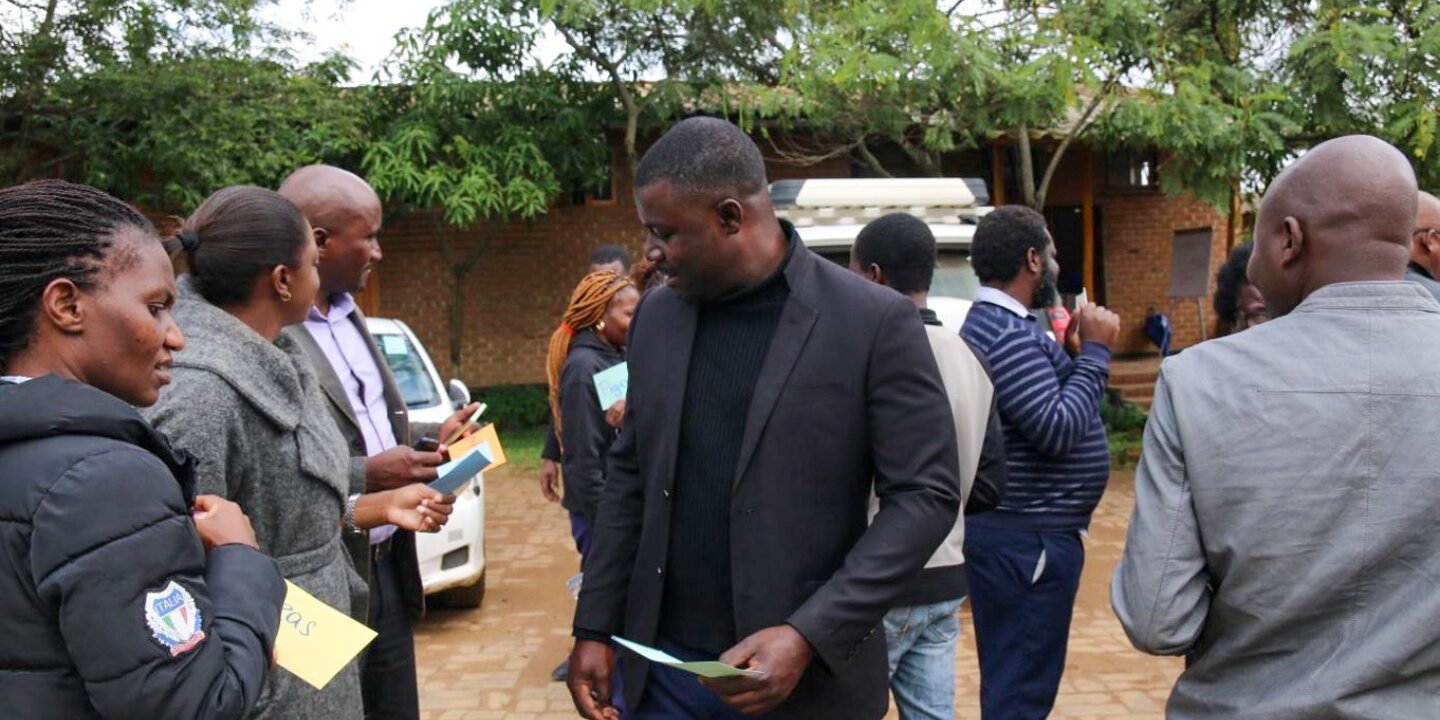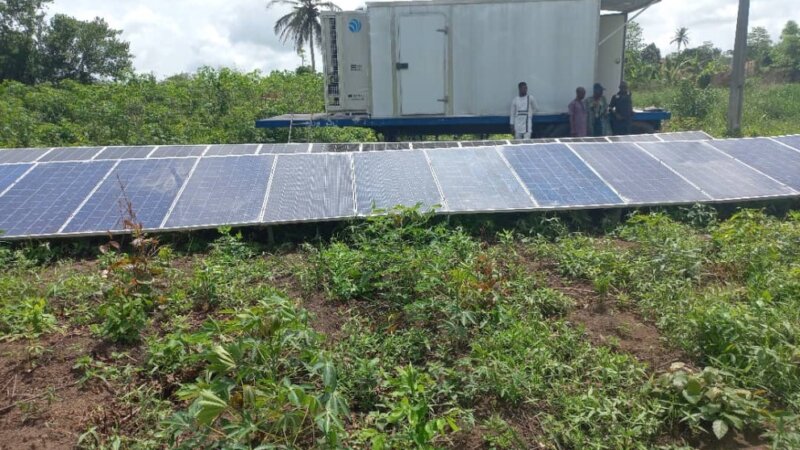Who Sits at the Table: Can Local Government Structures Drive a Food Systems Revolution?

An ice breaker session during the joint planning workshop of the Mzimba, Dedza and Chikwawa district councils to plan activities on food systems governance, held at Pottery Lodgeon, Dedza district on 12 May 2025 | © GIZ/Trevor Madeya
Trevor Madeya is an outreach officer working in GIZ across two food systems projects in Malawi. Trevor joined the 2025 food systems e-course and writes this blog to convey how food systems governance is a leverage point to achieve healthier diets for everyone across our food systems.
My father has a way of putting things. He once said, “Top-level managers lead with meetings and decisions that echo through institutions. But real change-makers are those same people who roll up their sleeves and do the unglamorous, backbreaking donkey work."
Let’s be honest – who enjoys endless meetings? We all crave action, right?
Successful interventions often share one common trait; flexible implementation approaches that highlight the value of getting hands dirty in groundwork and adapting interventions based on experiences. Concisely, scaling from the bottom up.
Reality check
Here in Malawi, we’ve hit a stubborn wall. The latest Demographic and Health Survey (2024) shows stunting has remained at 37% since 2015/16. Despite countless projects and activities led by government and partners, the needle hasn't moved. This has sparked serious conversations at the district level. What’s becoming clear is this: fragmented, sector-by-sector interventions aren’t enough. To truly shift the dial, we need a coordinated, systems-based approach – one that connects the dots across agriculture, health, environment, and beyond.
Governance: the hidden powerhouse of change
Every element is now under scrutiny, especially the governance of the food systems. Malawi has faced so many shocks: cholera outbreaks, COVID-19, tropical cyclones and El Niño-induced droughts. The government acted across all sectors and levels to restore equilibrium. A key factor in this response has been the ability of governance systems to offer coordinated, multi-actor action.
My understanding of the concept of “food systems” has really evolved, thanks to the food systems e-course. It’s no longer just about food and nutrition security, but a single continuum embedded within a complex web of interconnected elements. Governance is the glue that binds these together – enabling sustainability, resilience, and, most importantly, local ownership.
Shifting the paradigm – Districts leading the way
At GIZ, we’re walking this talk through projects like “Sustainable Transformation of Food Systems – Empowering Pathways Bottom-Up” and “The Global Transformation of Food Systems Initiative”. Both projects aim to strengthen governance as a lever to promote healthy diets. At the core of this work is a belief: healthy diets are not stand-alone goals; they are outcomes of well-governed, inclusive food systems that build on local strengths.
While the food systems approach may be new in Malawi, some districts are already blazing the trail. Mzimba, Chikwawa, and Dedza are actively setting-up structures to govern, monitor, and generate evidence around food systems. They're proving that with the right governance, bottom-up change is not only possible – it is powerful.
Ultimately, this isn’t just about SDG 2: Zero Hunger. Transforming food systems touches all SDGs – from health and education to climate action and gender equality.
At GIZ, our mission is clear: build safer, inclusive, and healthier food systems within planetary boundaries.
What about you?
So, I’m curious: what's happening in your countries regarding food systems governance to achieve healthier diets and sustainable food systems? Do you also believe a bottom-up approach can truly change the system? I'd love to hear your thoughts – drop a comment below.
And stay tuned! In six months; I’ll be back with more insights and lessons from Malawi’s journey on food systems governance.
Author

Trevor Madeya
e-course participant




